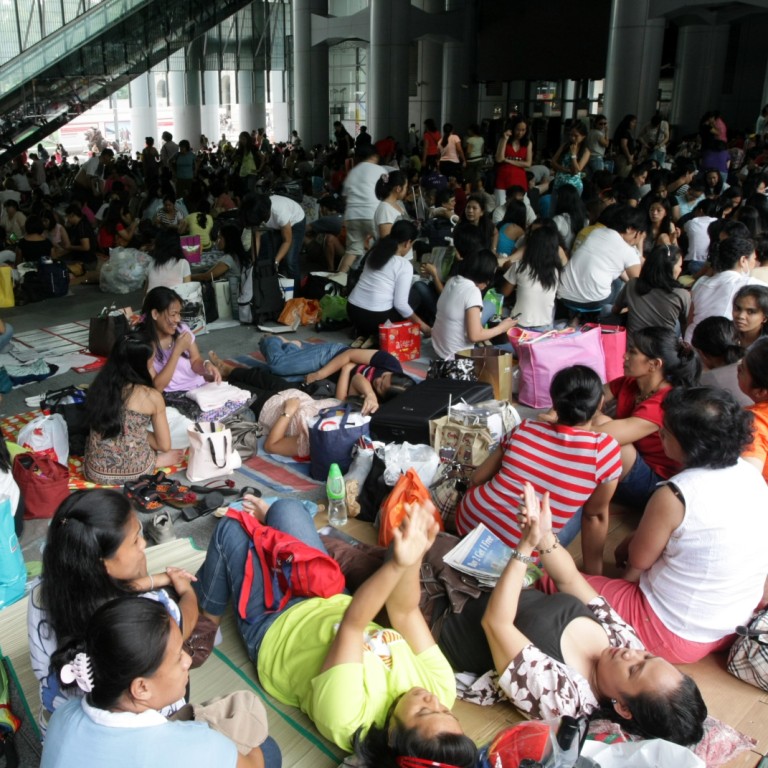
Hong Kong can have zero tolerance for forced labour by domestic helpers
Hong Kong has an armoury of options for prosecuting offences associated with human trafficking under the Crimes Ordinance, Immigration Ordinance or Offences Against the Person Ordinance, with deterrent maximum penalties ranging from 10 years to life in jail. But according to critics, the law tends to focus on trafficking for the purpose of prostitution rather than, say, for forced labour.
Hong Kong has an armoury of options for prosecuting offences associated with human trafficking under the Crimes Ordinance, Immigration Ordinance or Offences Against the Person Ordinance, with deterrent maximum penalties ranging from 10 years to life in jail. But according to critics, the law tends to focus on trafficking for the purpose of prostitution rather than, say, for forced labour.
Given that from January to July last year, 2,172 foreign domestic workers were granted visa extensions to resolve legal disputes with employers or recruitment agencies, and complaints against agencies have been running at a record level, the critics conclude that victims of forced labour are slipping through the net and perpetrators are operating unhindered. They have called on the government to broaden the definition of trafficking and to legislate to target forced labour, domestic servitude and debt bondage.
As we have reported, the Justice Centre Hong Kong and Liberty Asia claims that as a regional hub Hong Kong is both a destination and transit centre for human trafficking. It says recent reported cases of alleged abuse of domestic helpers bear many hallmarks of forced labour, such as contractual deception, excessive agency fees leading to debt bondage and retention of passports.
While all but a tiny minority of employers treat their domestic helpers well, boundaries have to be set through strong protections and enforcement. Secretary for Security Lai Tung-kwok has assured Legco that existing laws provide a "solid framework" on trafficking. That may be so, but it was only recently that justice officials expanded the Prosecution Code to cover more "human exploitation" activities. It remains to be seen if this leads to effective enforcement and punishment that fits the crime.
Reports like that of the Justice Centre give the false impression that forced labour is widespread. With more than 300,000 foreign domestic helpers in this city, serious cases investigated by police are relatively few and far between. Sadly, anecdotal evidence is more common. Human rights activists may be right to claim that more domestic helpers do not come forward because of fear of losing their jobs. That said, we give foreign domestic helpers better legal protection than rival Asian markets. It should be enforced. While most employers are good, the city should not tolerate even one case of abuse.

